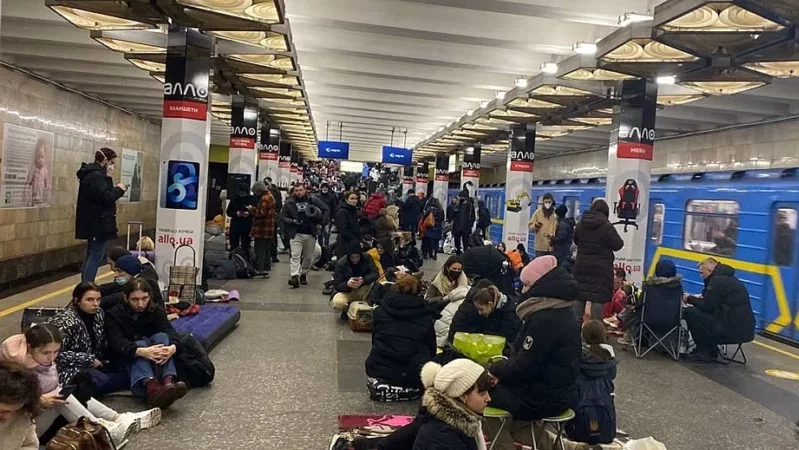In a sane world, publication of an “atlas of human suffering” would top the international news agenda all week.
That’s how UN chief Antonio Guterres described the latest Intergovernmental Panel on Climate Change report on the impacts of the climate crisis and adaptation strategies.
“A withering indictment and an industrious guide” is how our reporter Patrick Galey put it.
Since the last such report in 2014, many threats have moved from the “projected” column to the “unavoidable” – the consequence of continued failure to rein in global emissions. That’s the indictment.
The glass is half full of coping strategies for this baked-in trend. Research can tell us more about what works and what doesn’t. That’s the guide.
3.3-3.6 billion
The number of people classed as “highly vulnerable” to climate change impacts by the IPCC – nearly half the world’s population.
Isabelle Gerretsen covered the emerging body of literature on the mental health impacts of extreme weather. Joe Lo put the spotlight on seawalls, as an example of “maladaptation” – a solution to sea level rise that can cause more problems than it solves.
Patrick pulled out five takeaways from the heavyweight report and revealed which issues raised most friction between rich and at-risk governments.
This week’s news…
- Scientists warn seawalls can make rising waters worse in the long run
- Ukrainian official calls for Russian fossil fuel boycott at UN Environment Assembly
- IPCC report spotlights mental health impacts of climate change
- Under attack: the Ukrainian climate scientist fighting for survival
- Revealed: How rich and at-risk nations fought over science of climate impacts
- UN report shows us human costs of climate failure
- Five takeaways from the UN’s 2022 climate impacts report
…and comment
- We must disrupt Davos culture to end decades of failure on climate – Isak Stoddard and Kevin Anderson
- High-risk geoengineering technologies won’t reverse climate breakdown – Linda Schneider, Heinrich Böll Foundation
Of course, this is not a sane world and a certain leader in Moscow has got delusions of empire.
Important though the IPCC’s work is, it could not compete for media attention with the immediate violence of Russian troops advancing on Ukraine.
The invasion has triggered a drastic rethink of European reliance on Russian gas. With Ukrainian officials begging the world not to fund Vladimir Putin’s war by buying Russian energy, there is a scramble to find alternative sources – clean or dirty, but with an emphasis on the freedom brought by renewables and energy efficiency.
Nord Stream 2 will not go live. Western oil majors are pulling out of Russian joint ventures. The International Energy Agency is turning down the heating at its Paris HQ and proposing all Europeans do the same.
In an emotional interview from Kyiv, pioneering Ukrainian climate scientist Svitlana Krakovska told Chloé Farand there was “a very direct connection” between climate change and the war.
“I urge you please take joint action [to] withdraw all of the assets, all of the shares from Russian fossil fuel companies… because they’re using this money to kill people”
Ukraine’s deputy environment minister Roman Shakhmatenko, addressing the UN Environment Assembly from a basement bomb shelter
